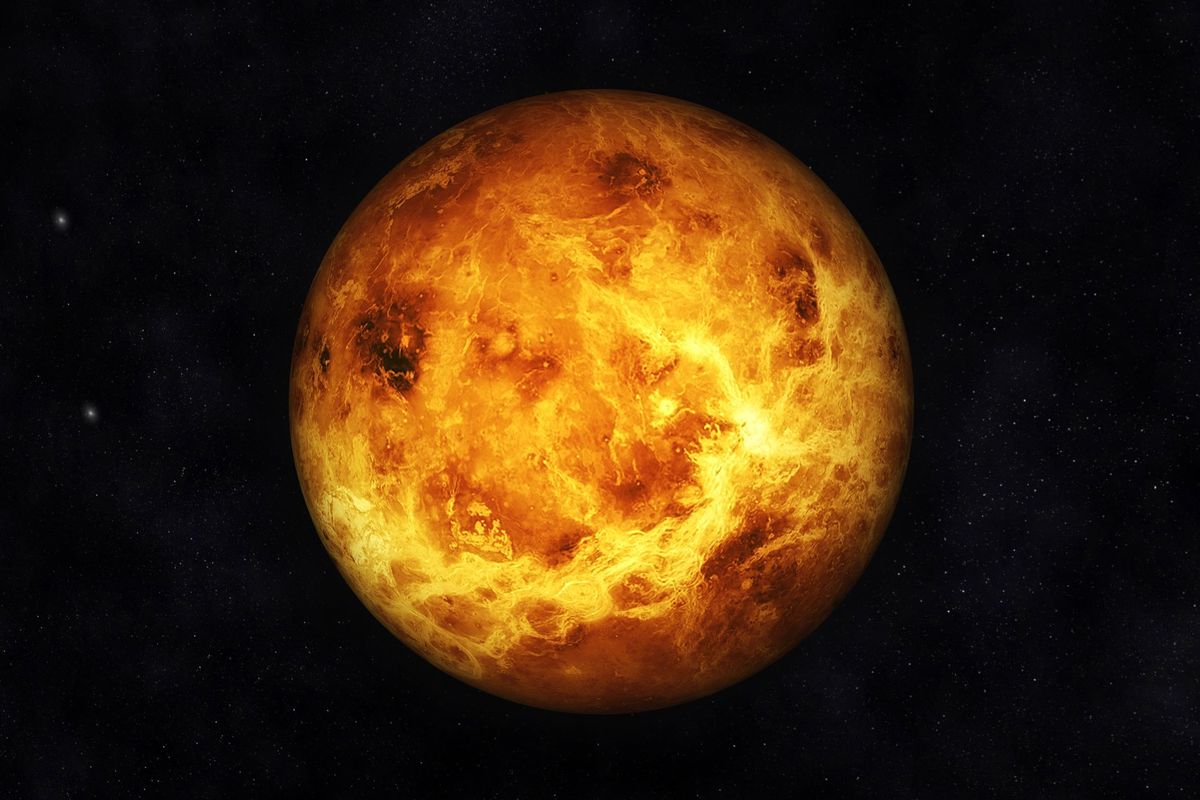Science & Tech
Sinead Butler
Dec 03, 2024
What If Earth Had Atmosphere Like Venus?
Underknown - Shorts / VideoElephant
Although Venus may be known as Earth's "evil twin," due to its similar size, its conditions massively contrast our planet due to its extreme surface heat and a dense, toxic atmosphere with clouds of sulphuric acid.
The second planet from the Sun has been widely researched by scientists who had believed that it used to be a lot cooler and even had oceans of liquid water and was potentially hospitable enough to host alien life... until now.
An analysis of the planet's atmosphere has challenged this previous belief as it shows that Venus's interior is dry, so it's pretty unlikely there were ever any oceans of liquid water to facilitate life.
So doesn't this mean there was no life on Venus at all? Well, according to the expert, there isn't a definitive answer.
“This doesn’t completely rule out any life. It rules out Earth-like life,” said Tereza Constantinou, first author of the research from the University of Cambridge.
She pointed to the fact that a vast sea of magma covered Venus during the planet's early formation, and water oceans may have been formed if this cooled quickly to create condensation.

But at the same time, water would've also been trapped in the magma as a result of this process, which would've meant there would be water inside the planet, and during volcanic eruptions, the water would've come out.
“If you look at any photos of volcanism on Earth, you see kind of these large billowing clouds coming out. Most of that is water,” she said.
However, it's a different story if the magma cooled slowly because the water would have become steam in the atmosphere, meaning it would not have been trapped inside the planet.
The team looked at the chemistry of the planet’s atmosphere to understand whether the planet contain water in its interior.
Not a lot of water was being added when the team analysed the ratios of substances being replenished in the planet's atmosphere which meant "dry" volcanic eruptions.
And it's important to note that due to the fixed state of Venus's atmosphere, substances that were lost must equal the rate at which they were replaced.
“The scarcity of water in volcanic emissions reflects an equally dry Venusian interior,” said Constantinou.
So the results indicate that Venus didn't previously have oceans of water on its surface, and therefore couldn't be regarded as hospitable.
This matter of whether Venus has ever been habitable has been the subject of a long-time debate among scientists.
On the one hand, you have those who believe Venus used to be similar to Earth before it experienced a runaway greenhouse effect, while others are steadfast in their belief that Venus has never been a hospitable environment for life.
But why is it important for us to understand Venus's atmosphere?
Having answers to this debate will assist in the search for habitable planets besides Earth.
“[Earth and Venus] provide this natural laboratory really close to us for studying how habitability, or the lack of it, evolves,” Constantinou added.
Those vital answers could be found when NASA launches the DaVinci mission which will fly over Venus and investigate its surface in a few years time.
This research can be found in the Nature Astronomy journal.
Elsewhere, strange polygon structures were found buried beneath the surface of Mars and could bat blood be the key to interstellar space travel?
How to join the indy100's free WhatsApp channel
Sign up to our free indy100 weekly newsletter
Have your say in our news democracy. Click the upvote icon at the top of the page to help raise this article through the indy100 rankings.
Top 100
The Conversation (0)














